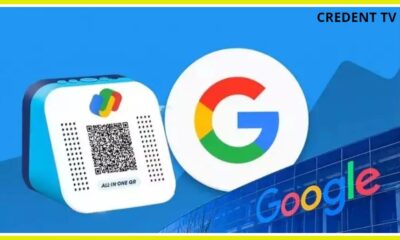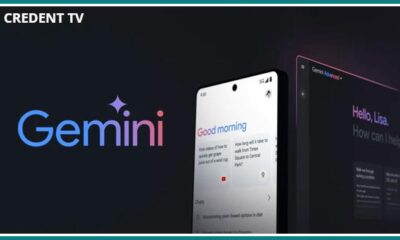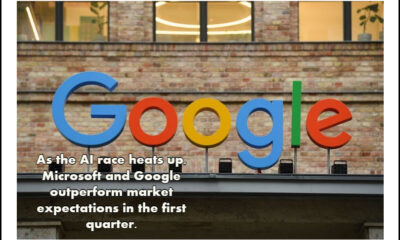Google’s strategy to compete with ChatGPT is to integrate AI into everything
Published
1 year agoon

A potential rival to Google’s search engine is ChatGPT, while OpenAI poses an even greater threat due to its close ties to Microsoft
Google’s purview was supposed to be artificial intelligence. The business has built a reputation for placing long-term bets on a variety of futuristic technologies, and a significant amount of the research underlying the current fad of chatbots powered by AI was conducted in its labs. By releasing ChatGPT in November, a startup by the name of OpenAI, however, became an early leader in so-called generative AI—software that can generate its own text, images, or videos.
Due to its unexpected success, Alphabet, the parent company of Google, is racing to catch up in a crucial area of technology that, according to CEO Sundar Pichai, will have “more profound effects than fire or electricity.”
Read Also:- Military Reaction To Pakistani Provocations More Likely Under PM Modi: U.S. Intel.
Given that OpenAI has close ties to Microsoft, ChatGPT, which some see as a potential rival to Googl’s traditional search engine, appears even more dangerous. According to current and former employees as well as others close to the company, many of whom asked to remain anonymous because they weren’t allowed to speak publicly, the feeling that Google may be lagging in a field that it has considered a key strength has led to no small amount of anxiety in Mountain View, California. There is an unhealthily unhealthy combination of abnormally high expectations and great insecurity about any AI-related initiative, according to a current employee.
According to a former employee, Pichai is reliving his days as a product manager thanks to the effort because he’s started commenting directly on the specifics of product features—work that would ordinarily be well below his pay grade.
The two co-founders of Gogle, Sergey Brin and Larry Page, have also become more actively involved in the business than they have in recent years. Brin has even contributed code updates to Bard, Google’s ChatGPT-like chatbot. All of the company’s most crucial products—those with more than a billion users—must integrate generative AI within months after senior management issued a “code red” order,
Some former Googl employees have been reminded of the last occasion when the company implemented an internal directive to infuse every key product with a new concept: the initiative starting in 2011 to promote the doomed social network Google+. While Google’s leadership in AI is undeniable, its reputation as a leader in social networking was never the same.
Nevertheless, the sensation is the same. Previously, the success of Google+ was linked to employee bonuses. At least some Googlers’ ratings and reviews will probably be influenced by their capacity to incorporate generative AI into their work, according to current and former employees. Numerous generative AI integrations have already been planned as a result of the code red. One Google employee says, “We’re throwing spaghetti at the wall. However, it falls far short of what is required to transform the business and remain competitive.
The Google+ mobilisation ultimately fell short. The social network had trouble gaining users, and Google eventually announced in 2018 that it would stop selling the product to end users. A former Google executive believes the failure serves as a lesson. This person claims, “Larry’s directive was that every product has to have a social component. “It ended pretty badly,”
The comparison between the Google+ campaign and code red is refuted by a Google representative. The current AI push has largely consisted of encouraging Googlers to test out the company’s AI tools internally, according to the spokesperson: a common practise in tech known as “dogfooding,” even though the Google+ mandate affected all products. According to the spokesperson, only those working on pertinent projects have been pivoting to spend more time on AI.
Google is not the only company that believes AI has taken over the world. Venture capitalists and business owners in Silicon Valley have suddenly declared themselves to be AI visionaries, shifting their focus away from current obsessions like the blockchain, and businesses are experiencing skyrocketing stock prices after announcing AI integrations. According to two people with knowledge of the situation, CEO of Meta Platforms Mark Zuckerberg has been concentrating on AI lately rather than the metaverse, a technology he recently declared to be so essential to the business that it necessitated changing its name.
Some Google employees are relieved by the new directives because they are well aware of Google’s history of delving into speculative research only to falter when it comes to commercialising it. Members of some teams already working on generative AI projects are hopeful that they’ll now be able to “ship more and have more product sway, as opposed to just being some research thing,” according to one of the people with knowledge of the matter.
Given the amount of work Google has already done, it might not matter all that much in the long run that OpenAI completely shut down the public discourse for a few months. In 2016, Pichai started referring to Google as a “AI-first” business. In addition to incorporating AI into important consumer products like Gmail and Google Photos, which use the technology to assist users in email composition and image organisation, it has long used machine learning to power its advertising business.
Google dominated the field, according to a recent analysis by research firm Zeta Alpha that looked at the top 100 most-cited AI research papers from 2020 to 2022.
“According to how things turned out, Google was essentially the sleeping giant that is now playing catch-up. Amin Ahmad, a former Google AI researcher who co-founded Vectara, a startup that provides conversational search tools to businesses, believes that the reality is actually not quite that. “Google actually applied this technology very well, in my opinion, years and years ahead of the rest of the industry, in some of their core products.”

You may like
-


Google Pay Will Launch SoundPod With Audio Warnings for Indian Merchants Following a Year-Long Trial
-


Google Has Rebranded Bard, Its Chatbot, as Gemini
-


Twitter’s paywall system has been removed from its application programming interface
-
On May 10, the ‘Google I/O 2023’ conference will start
-


The address bar in Google Chrome will gain a new security indicator.
-


Microsoft and Google outperform market expectations in the first quarter

